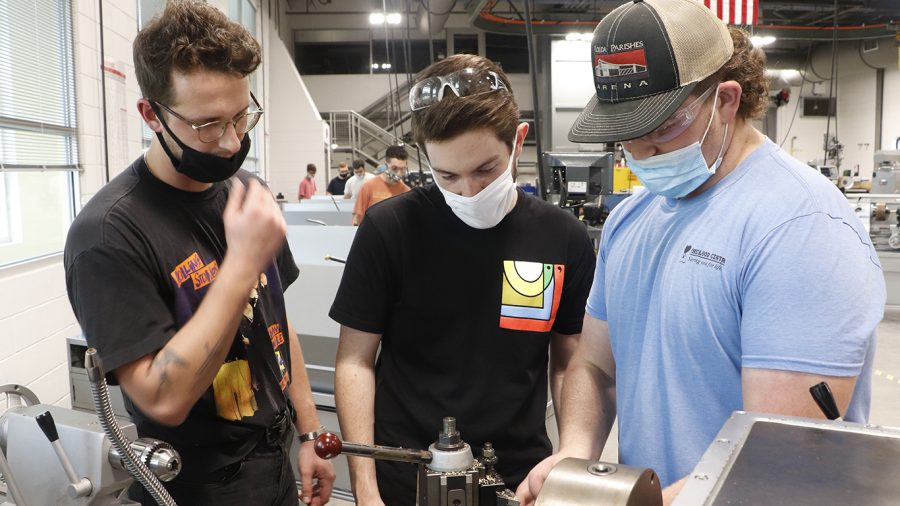New bachelor’s degree in Integrated Science and Technology in the works
File Photo/Le Souviner
A Bachelor of Science in Integrated Science and Technology would allow students to blend coursework from two programs.
A Bachelor of Science in Integrated Science and Technology (ISAT) has been approved at the University of Louisiana System level.
Once approved by the Board of Regents, the new degree program will have a tentative start in the upcoming fall semester.
Daniel McCarthy, Ph. D., dean of the College of Science and Technology, detailed why the college felt a need for the new degree program.
“What we’re finding nowadays is that many jobs require a blending of two different disciplines,” shared McCarthy. “For example, I think computer science ties into so many different things — like if you’re in healthcare, it’s always useful to be able to program an iPad to help you with diagnostics.”
The new ISAT program will allow students to blend coursework from two separate programs and dabble in workforce-ready disciplines, according to McCarthy.
“It is to choose your major which has coursework from two different programs, so you could do computer science and biological sciences if you wanted to get into bioinformatics,” explained McCarthy. “If you’re wandering into wetland ecology but you don’t understand remote sensing, you could then introduce engineering and technology to biology.”
McCarthy hopes that the new degree program will better align the university with the workforce.
“Things are adapting and changing all the time. You need to be able to adapt quickly, so I think that the local companies will be very responsive to it,” detailed McCarthy. “I think it’s going to draw a lot of students to Southeastern who might not have thought about it, knowing that there’s a program out there that didn’t exist before.”
Sanichiro Yoshida, Ph. D., professor of physics and co-coordinator of the Masters in ISAT program at the university, also emphasized the importance of ISAT.
“Recent advancement in science and technology makes the boundaries between various subjects unclear,” explained Yoshida. “For instance, nano-technology requires quantum mechanical or quantum chemical knowledge in mechanical engineers.”
In addition, pursuing a graduate degree in ISAT benefits those looking to become specialists in the area, according to Yoshida.
“In my opinion, recent technological advancement requires additional knowledge and skill over what one would master in undergraduate programs,” expressed Yoshida. “In some countries, applicants with undergraduate degrees in science and technology are considered to be a generalist, not a specialist of the field.”
Yoshida believes that holding subject matter expertise benefits a wide range of career fields in the workforce.
“It is essential that medical providers know how the instrument works, not only how to use them,” detailed Yoshida. “You can read the manual to know the steps to use a given instrument, but the manual will not tell you how the machine works.”
Your donation will support The Lion's Roar student journalists at Southeastern Louisiana University.
In addition, your contribution will allow us to cover our annual website hosting costs.
No gift is too small.




